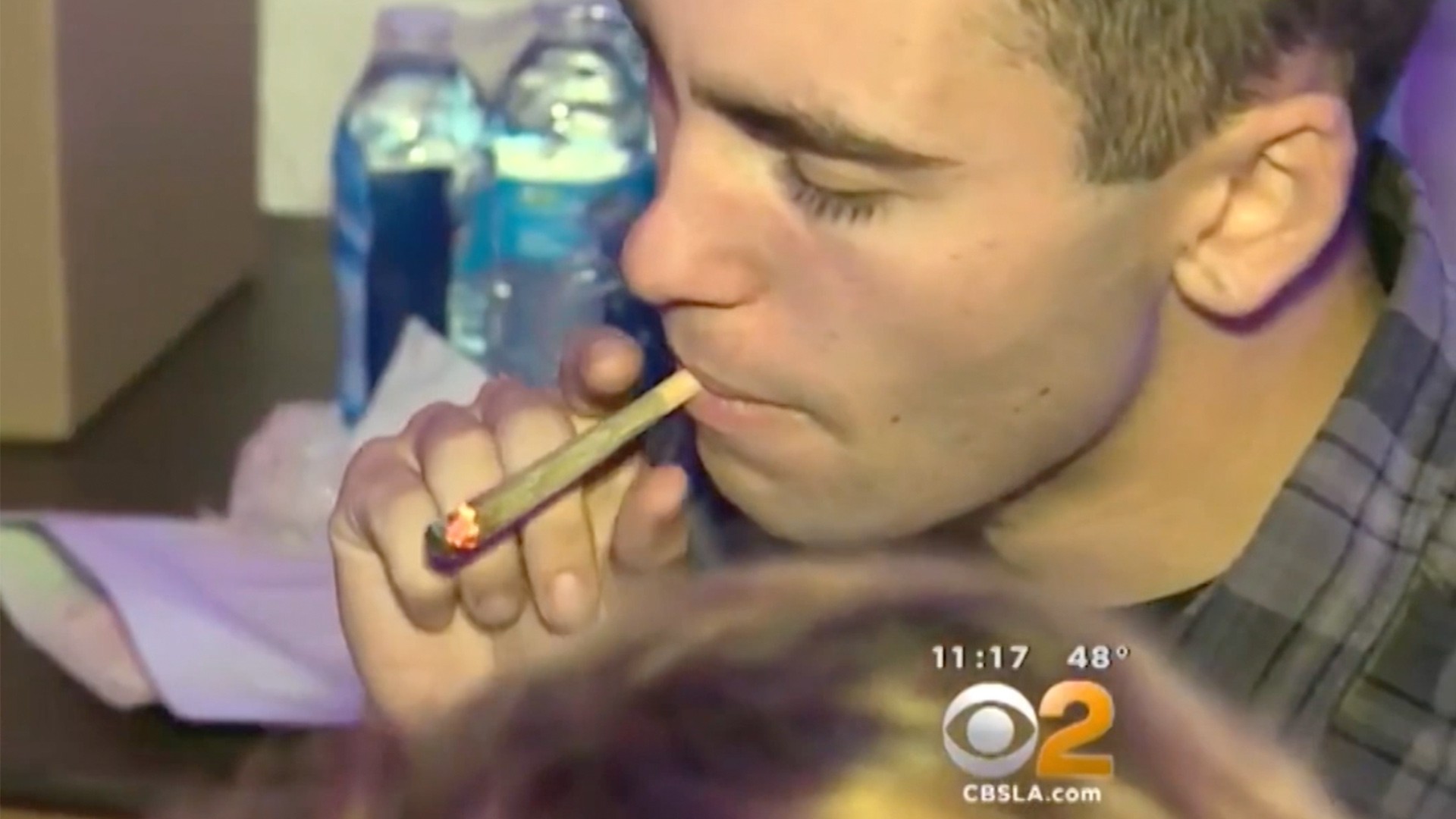Left Image: Photo of the author's late grandmother courtesy the author. Right Image: former Speaker of the House John Boehner in 2016. Photo by David Paul Morris/Bloomberg via Getty Images
My Abuela Maria was 14 and pregnant when she dropped out of eighth grade to sell 50-cent joints to her neighbors.Her mother had died in childbirth and her father was long gone, leaving her to provide for her sickly twin brother, her bisabuelos, herself, and her soon-to-be baby on her own.

Family lore has it that Maria was first arrested for dealing marijuana in 1950, and that she broke out of the McLennan County jail that year to be present at my mom’s first birthday party. She spent the next 50 years of her life serving time on and off, often for pot-related charges.Our current political landscape is culturally and legally becoming more receptive to the medicinal and recreational use of marijuana. I study the impact of state and national pot policies on people of color, and I’m committed to the decriminalization of the drug. However, as a person of color, and as Maria’s granddaughter, the way black and brown folks are shut out from the current pro-weed movement is embittering.I’ve seen the racism of the war on drugs up close, and it can’t be forgotten as America dives into the legal weed industry.After all, prohibitions on marijuana use have evolved in-step with American ideas about race. My home state, Texas, banned the use of marijuana in the early 1900s in response to white anxieties about the Mexican Revolution and resulting immigration. At least 29 states had already outlawed marijuana by 1936 when the propaganda film Reefer Madness seemed to confirm America’s worst fears: weed made Mexicans and African-Americans into violent criminals. By 1937, the Marihuana Tax Act effectively banned cannabis use nationwide, cementing racist drug policies a fact of life in America.Only in the 1960s, when weed gained popularity among educated young white people, did America’s cultural opinion begin to shift and the laws (slowly) begin to follow suit. And it’s been a real slog since then.After 40 years in and out of prison, I was told, Maria’s final arrest came when she was 54 and still selling joints and dime-bags. When the police came, Abuela Maria and her brother, Jorge, said they didn’t realize it was a raid, and that Jorge thought a competing dealer was trying to break in. He fired his gun, injuring the officer who kicked down the front door.Jorge was found guilty of attempted homicide. Abuela Maria was charged as an accomplice and sentenced to life without parole.As a child, I felt profoundly ashamed of my Abuela Maria, believing she was proof that people who called Latinos uneducated or criminals were right. I didn’t understand the violence of institutional racism then.My grandmother’s story is all too common. Elderly people of color in prisons across the US are serving out decades-long and sometimes life sentences for marijuana charges. Had they not been arrested (perhaps if they had been white), many of them might have become celebrated entrepreneurs: edgy pot-gummy moms, quirky owners of “bud and breakfast” hotels, or maybe even proprietors of boutique cannabis accessories.Today’s politicians seem to be selling legalization to voters at least in part as a way to transfer the weed business from shady brown and black folks to trustworthy white business owners. There’s an irony in our current president’s declaration that Mexicans are bringing drugs into this country, even as many states move toward legalization and as the former speaker of the House, John Boehner, transitions from politician to glorified drug dealer.Only in America can a white guy like Boehner, who helped prop up the drug war for years, flip-flop overnight into a for-profit pot lobbyist.Meanwhile, despite weed’s mainstreaming, people of color are often excluded from the spoils. In many states where marijuana is legal, you must have a clean criminal record to become a licensed dealer and the drug is heavily taxed, pricing out low-income consumers and making unlicensed dealing more accessible—if also more dangerous. All of this means that people of color will almost certainly continue to disproportionately be arrested on marijuana charges in the years to come.My grandmother was released from prison at age 66 on "compassionate" grounds. Had it not been for the heart condition that was the basis for her early release, she likely would have died a prisoner.When she came to live with us, I was 13 and still resented the stereotypes she represented for me. I never got to know her well. She passed away in 2016, having spent the final decade of her life working as a re-entry mentor and bible studies teacher at the same Huntsville, Texas prison where she served her last sentence. When I think of her now, I see her determination and resilience, but also the consequences people of color have endured from a century-long drug war.It’s worth keeping people like her in mind as you celebrate 4/20 and the seemingly magical trend toward pot acceptance in America.Sign up for our newsletter to get the best of VICE delivered to your inbox daily.Follow Lauren Lluveras on Twitter.

Family lore has it that Maria was first arrested for dealing marijuana in 1950, and that she broke out of the McLennan County jail that year to be present at my mom’s first birthday party. She spent the next 50 years of her life serving time on and off, often for pot-related charges.
Advertisement
Advertisement
Advertisement
